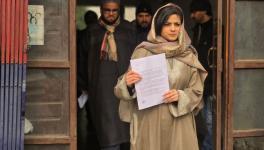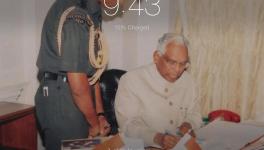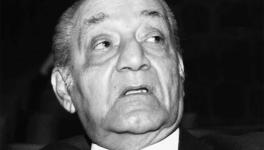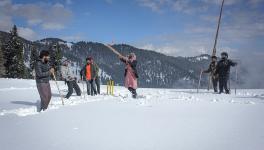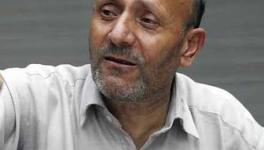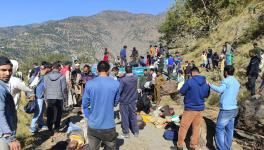Why SC Must Flex Its Muscles on Kashmir
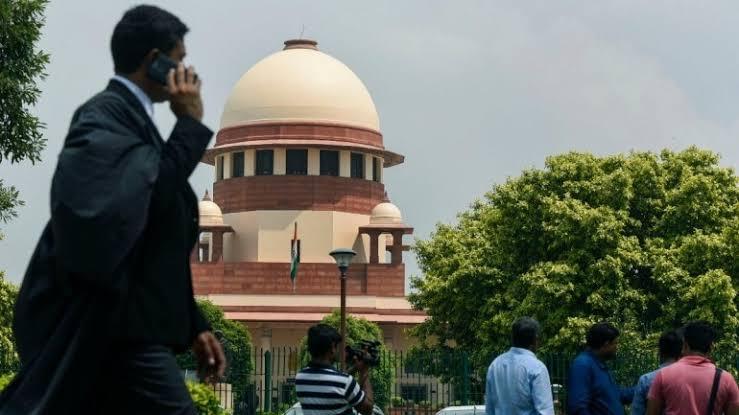
Image Courtesy: PTI
The challenge to the abrogation of Article 370 and reorganisation of Kashmir was to be heard last week by a five-judge bench. The bench however, adjourned the hearings until November 14, on a request by the Solicitor General, for time to file a response to the 10 petitions which were due to be heard. The SC’s order was no different from its response since the abrogation. Amid the chaos and confusion of the crisis, the Supreme Court has remained on standby.
Kashmir has been under a communication blackout for over two months. Petitioners who approached the Court returned empty-handed as writ petitions asking for urgent intervention have been adjourned week after week. In one order, the Court said it would wait for normalcy to return as the situation is “sensitive.” The hearings were adjourned, and the Court refused to direct the Centre to lift restrictions in the region. Instead, it granted time to the government to withdraw the curbs.
In another petition, the editor of Kashmir Times, Anuradha Bhasin, approached the Court to seek restoration of communication services in the area, the lack of which violates the media’s right to practice its profession. When the petitioner appeared before the Supreme Court for the third time, she was asked why the High Court had not been approached first.
Another petitioner appeared before the court concerned with the detention of children amidst the crisis. Here, the court directed that a report be submitted on the restrictions to approach the High Court. While issuing this direction, the Court warned the petitioner that if their apprehensions are not true they should be ready to face consequences.
The days since the abrogation have been followed by the crackdown by the armed forces. There have since been reports of night raids, arrests of young Kashmiris, and deaths. Nearly all prominent Kashmiri leaders, including many other unaccounted voices of dissent, have either been imprisoned or put under house arrest.
UN Experts, while calling out the injustice in the execution of the government’s decision said, “The blackout is a form of collective punishment of the people of Jammu and Kashmir, without even a pretext of a precipitating offence.” The concerns voiced however, have failed to awaken the constitutional conscience of the Supreme Court. Silence, inaction and maintaining a distance from urgent issues is not without consequences. No order has been issued communicating and giving reasons for the lock-down.
The only other forum for protection, the High Court, finds itself helpless with lawyers in short supply and habeas corpus petitions piling up. When unprecedented curbs have been implemented by skipping the rigours of democratic procedure and the rule of law, the Court is duty bound, at the very least, to view the acts of the government with skepticism.
Justice Khanna’s historic dissent in ADM Jabalpur, the habeas corpus case in the Emergency years, reveals what is at stake here: “The question is not whether there can be curtailment of personal liberty when there is a threat to the security of the State... The question is whether the laws speaking through the authority of the courts shall be absolutely silenced and rendered mute because of such threat.”
Not exercising the powers and independence that the SC has fiercely protected in the past, is a conscious abdication of the court’s constitutional role. The government may have been the author of this crisis, but the SC has ensured, by omission, that it continues. The Court has eroded its own credibility as guardian of fundamental rights.
It took the Supreme Court 43 years to undo the injustice of ADM Jabalpur. As it did so in 2019. It said, “When histories of nations are written and critiqued, there are judicial decisions at the forefront of liberty. Yet others must be consigned to the archives, reflective of what was, but should never have been...”
Histories of nations are not determined with judicial decisions alone. They are determined equally by what the courts fail to do. Irrespective of what the five-judge bench decides, by keeping its silence, the Supreme Court has already abandoned Kashmir.
Sugandha Yadav is a lawyer based in Delhi and has assisted other advocates in Kashmir-related cases. Views are personal.
Get the latest reports & analysis with people's perspective on Protests, movements & deep analytical videos, discussions of the current affairs in your Telegram app. Subscribe to NewsClick's Telegram channel & get Real-Time updates on stories, as they get published on our website.









